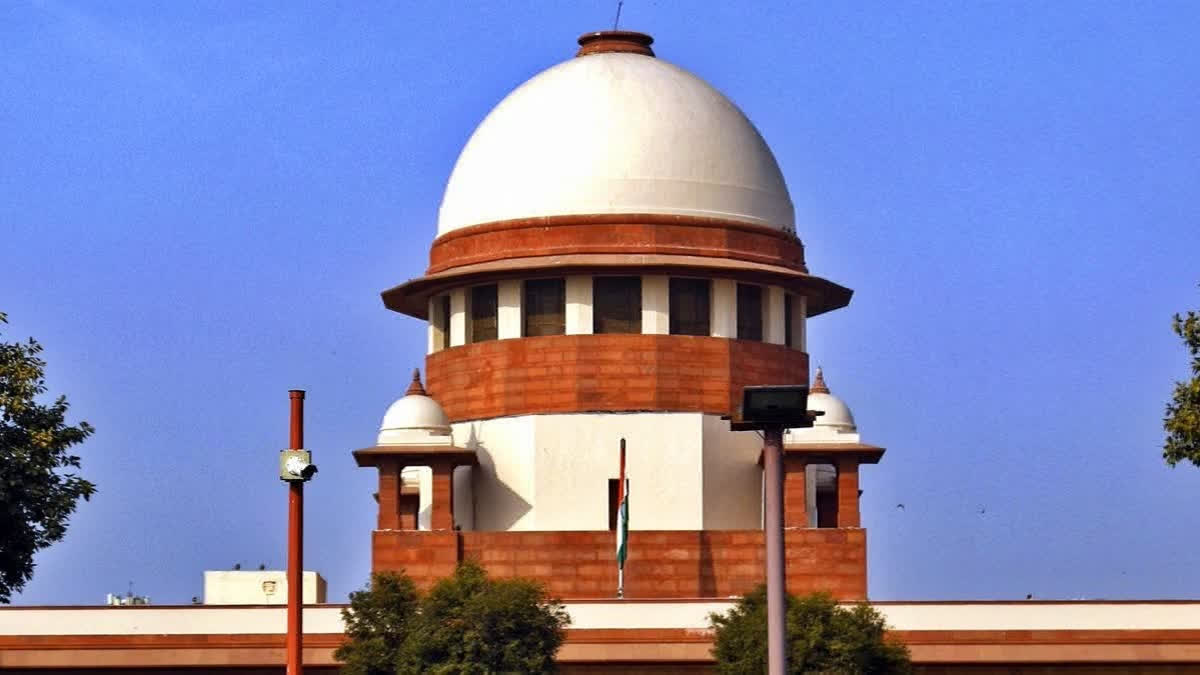New Delhi: The Supreme Court Friday orally observed in Bihar, most people would be aware of the caste of their neighbours, which is not the case in Delhi, while hearing pleas against the Patna High Court decision upholding the Bihar Caste Survey, which was undertaken by the state government. The apex court made this observation while dealing with the question of whether a caste survey by the Bihar government violates the right to privacy.
Senior advocate CS Vaidyanathan, representing a petitioner Youth for Equality, contended before a bench comprising Justices Sanjiv Khanna and SVN Bhatti that people cannot be compelled to disclose such details. He submitted that how can anyone be compelled to disclose their religion, gender? The question is can somebody be compelled to give these details without a law?
Vaidyanathan stressed that here we are talking about the right of privacy being invaded and there is no law which has been made by the state to enable them to invade this privacy. He added that when fundamental rights are being affected it cannot be an executive notification, it has to be a statute law and that is the view taken by the apex court in a constitution bench judgment (Puttaswamy case). In the Puttaswamy case it was held that individuals have a fundamental right to privacy.
During the hearing today, the bench observed, “what way is right to privacy is affected….somebody asks…gives his caste or the sub-caste but that data is not released it is retained. What is released is the cumulative figures”. Vaidyanathan pointed at the list of 17 items which are sought to be asked, how can somebody compel to give this information?
Justice Khanna said, “Your caste is known to your neighbours….in Bihar…unfortunately, it is true….In Delhi, we don’t know, I will be very frank”. Vaidyanathan said how can somebody be compelled to disclose religion, gender, caste, monthly income etc. and the only voluntary thing is Aadhaar and everything else is mandatory. Vaidyanathan reiterated, can somebody be asked to give all these details without a law?
The top court said it would not stay the publication of the caste survey results unless a prima facie case is made out by the appellants. Noting that there is a judgment in favour of the state government, the bench said, “We are not going to stay anything unless there is a prima facie case... the exercise has already been completed….”. The hearing in the matter will continue on August 21.
Petitions have been filed in the Supreme Court challenging the Patna High Court decision to uphold the Bihar caste survey, which is being undertaken by the state government. One of the pleas said the state of Bihar lacked competence to notify caste-based survey vide notification dated June 6th, 2022.
The plea said, “In terms of Constitutional mandate, only the Union Government is empowered to conduct Census. In the present case, the State of Bihar has sought to usurp the powers of the Union of India, by merely publishing a notification in the official gazette”.
The plea contended that the caste-based survey notification is against the constitutional mandate of distribution of powers between the state and the Union legislature as enshrined under Article 246 of the Constitution read with Schedule VIIth of the Constitution and ultravires the Census Act, 1948 read with Census Rules, 1990 and is therefore void ab intio.
Also read: Supreme Court releases handbook combating gender stereotypes in court orders



